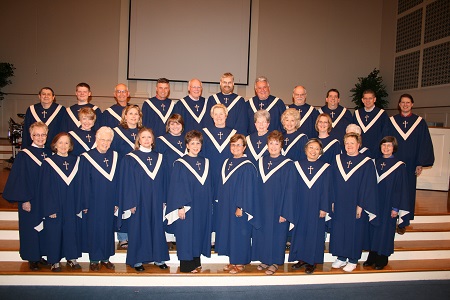Over the Top
 To get to the top floor of a house, we usually climb stairs. To go over the top of the house requires more work – extreme efforts. Most of us would be foolish to try.
To get to the top floor of a house, we usually climb stairs. To go over the top of the house requires more work – extreme efforts. Most of us would be foolish to try.
Over the top often means to go beyond acceptable behavior.
We describe such actions as:
- Extreme
- Reckless
- Strange
- Shameful
- Foolish
Over the top occasionally means brave behavior.
Some soldiers in battle go over the top of their trenches. They leave safety to attack their enemy. That action puts them at greater risk for losing their lives.
Yet, those soldiers:
- Value the battle’s purpose more than personal safety
- Go beyond the call of duty
- Take the risk for a greater cause
They are willing to die for what they believe. Because of such bravery, we celebrate our country’s independence on the Fourth of July.
Let’s choose our behavior carefully.
When we need to be careful, stay wise as an owl. However, when we need to be brave, go over the top.
“The Lord makes firm the steps of the one who delights in him” (Psalm 37:23 NIV).
Thanks to Karen Atwood for the suggestion.
Do you have an expression you want explained or a thought about this one? If so, please comment below.
Subscribe to receive my weekly posts by email and receive a free copy of “Words of Hope for Days that Hurt.”
If you enjoyed this post, please share it with your friends.
 Dr. Seuss wrote, “With your head full of brains and your shoes full of feet, you’re too smart to go down any not-so-good street.”
Dr. Seuss wrote, “With your head full of brains and your shoes full of feet, you’re too smart to go down any not-so-good street.” Someone asks a question. We don’t know the answer. What do we do? We may say, “You’re guess is as good as mine.”
Someone asks a question. We don’t know the answer. What do we do? We may say, “You’re guess is as good as mine.” Food for thought means something to consider.
Food for thought means something to consider.  You made your bed, you must lie in it has nothing to do with making a bed. The expression focuses on behavior.
You made your bed, you must lie in it has nothing to do with making a bed. The expression focuses on behavior. While on a trip, many of us look forward to the end of the road.
While on a trip, many of us look forward to the end of the road.  Some people stay cool as a cucumber.
Some people stay cool as a cucumber. My friend Phyllis recently had an ox in the ditch. She and her husband dressed for church. Then they noticed a cow having trouble birthing its calf. Their cow needed help. Putting
My friend Phyllis recently had an ox in the ditch. She and her husband dressed for church. Then they noticed a cow having trouble birthing its calf. Their cow needed help. Putting 
 Pastors don’t need to convince believers to accept Jesus. That would be like preaching to the choir.
Pastors don’t need to convince believers to accept Jesus. That would be like preaching to the choir.  To spread a message, the messenger must go to those who:
To spread a message, the messenger must go to those who: Of course, people enjoy sharing the same beliefs. Choir members sing and praise God with other believers. True worship makes them
Of course, people enjoy sharing the same beliefs. Choir members sing and praise God with other believers. True worship makes them